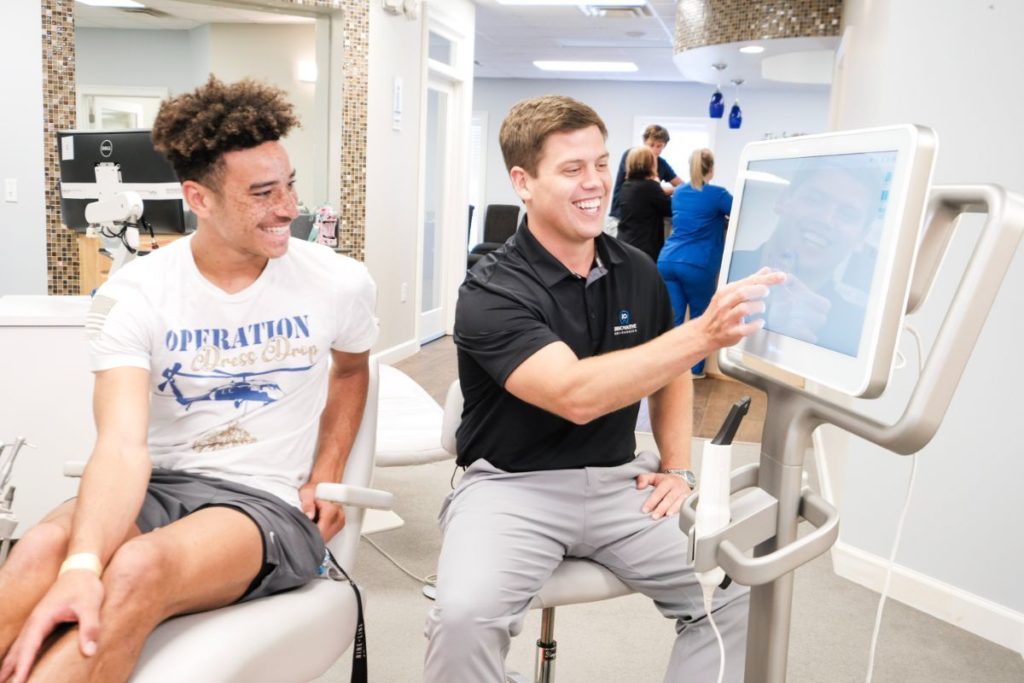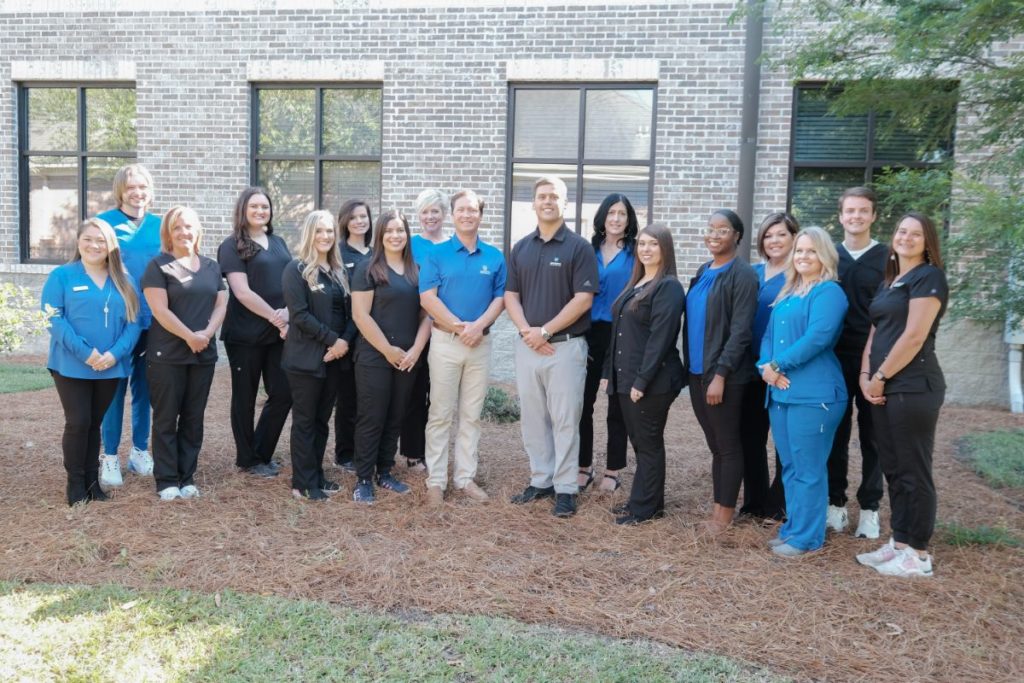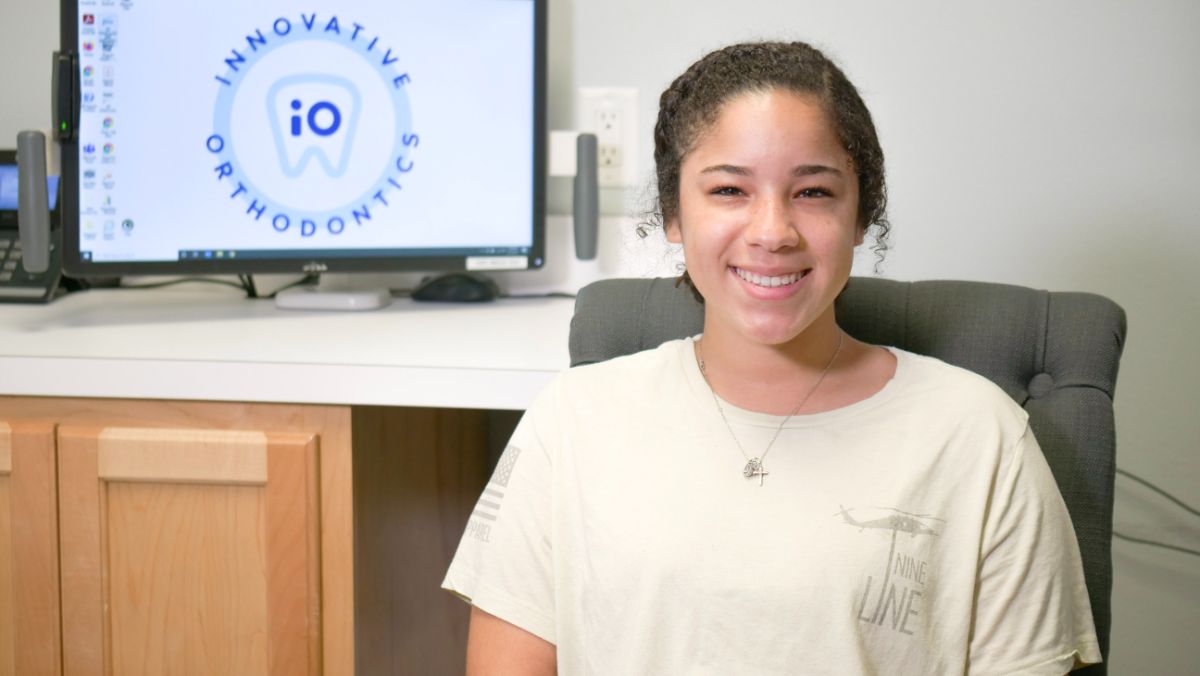For more than 20 years, Innovative Orthodontics has been providing beautiful smiles for Savannah, Rincon, and Pooler families. We’re proud to help patients of all ages achieve beautiful smiles that feel just as good as they look! The biggest part of that process involves a combination of expert knowledge and the latest in orthodontic technology, but that’s not all we do here—our doctors also advise patients on how to maintain a healthy smile throughout the treatment process (and beyond!)
That advice covers dental hygiene routines, which are especially important for orthodontic patients. While Dr. Waters and Dr. Clayton talk a lot about the best ways to brush and floss, they also make sure patients are aware of any bad habits that could be undermining their efforts. This tip applies to everyone, though, even those who aren’t wearing braces or clear aligners!
Bad oral habits are extremely common. In fact, you probably engage in one or more of them without even realizing it! Unfortunately, these habits can damage your smile and compromise your oral health no matter how good you are about brushing and flossing. Keep reading below to learn more about how these habits can be harmful and what you can do to beat them.
Crunching on ice, sipping on sodas
If you like to crunch on the leftover ice in your cup, this one’s for you! This can seem like a harmless habit, but the texture and cold temperature of the cubes can cause quite a bit of damage to your teeth. Chewing on ice frequently can cause microscopic cracks in the surface of the enamel, which may lead to other dental issues over time.
Sipping on sweet drinks like soda and fruit juice throughout the day is another bad habit you’ll want to break for the health of your smile! Constant exposure to sugar can increase the chances of developing tooth decay, while the acids in these drinks can wear down the enamel. This may result in tooth sensitivity and cavities.
The good news is, it’s much easier to break these particular habits once you’re aware of them! Easy fixes like switching to crushed ice over cubes will help. If you must have soft drinks, try drinking them through a straw to minimize exposure to your teeth. For the most benefit, position the straw towards the back of your mouth instead of resting it against your teeth.
Using your teeth as tools
As an orthodontic practice, we’ve seen our fair share of patients using their teeth in some surprising ways. Uncapping bottles, ripping tags off, opening up bags of chips might save you a few seconds, but it can be rough on your teeth! These actions can weaken them, increasing the risk of chipping or fracture. It can also cause discomfort, pain, and sensitivity. To keep temptation at a minimum and your smile in good shape, place simple tools like scissors, nail clippers, and pliers in convenient places around your house and use them instead.

Teeth grinding
The technical term for teeth grinding is bruxism, which describes any involuntary grinding of the teeth that occurs outside of normal chewing, swallowing, or speaking movements. This is a relatively common habit with several possible causes, including:
- stress and anxiety
- medications
- certain medical conditions
- genetics
- misalignment between the teeth and jaws
- an abnormal bite
- missing or crooked teeth
Many people grind their teeth without even realizing it. This is especially true if it happens while they’re sleeping. Whether you’re aware of it or not, bruxism can cause a range of problems, including interrupted sleep and pain in your jaw, face, or neck. It can also wear down the enamel of your teeth over time. This can expose the soft dentin inside them, which may result in painful tooth sensitivity.
There are several possible solutions for this harmful habit! The first step is identifying and treating any underlying causes. Once these have been addressed, a dentist or orthodontist can begin correcting any existing damage. Proactive treatment may also be recommended to help prevent any further impact, which can often be accomplished with something as simple as overnight mouthguards.
Sometimes just being mindful of this habit can help you break it, particularly if it’s a stress response. The next time you feel yourself beginning to clench or grind your teeth, try positioning the tip of your tongue between your teeth. Over time, this will train the jaw muscles to relax. You can hold a warm washcloth against your cheek to produce a similar effect.
Incorrect brushing and flossing
When it comes to maintaining healthy teeth and gums, how you brush is almost as important as how often you do it! For example, many people believe that the firmer a toothbrush is, the better it is at cleaning the teeth. Not only is this untrue, firm bristles can actually cause problems, especially for older adults. That’s because as we age, our gums tend to recede, leaving the roots of the teeth exposed. These roots are covered with something called cementum, which wears away more easily than enamel. Brushing with firm bristles can irritate the gums and increase tooth sensitivity.
To keep your smile feeling as good as it looks, we recommend following these basic guidelines.
- Brush at least twice a day for two minutes each time.
- Use a soft-bristled toothbrush and fluoridated toothpaste.
- Floss every night before bed to remove stubborn food particles and get rid of sticky plaque.
- Add an antimicrobial or fluoride mouthwash to eliminate the bacteria that cause bad breath and gum disease.
- Replace your toothbrush every 3-4 months, or sooner if you’ve had a cold or any other illness.

Extra TLC for your smile with Innovative Orthodontics
At Innovative Orthodontics, our expert team has many years of experience in identifying and treating a wide range of orthodontic issues. Part of that involves recognizing harmful oral habits and helping patients address them. If you suffer from any of these habits and want to achieve a healthier smile, we’d love to hear from you! Get in touch today to schedule a FREE consultation with our doctors and take the first step towards improved oral health!

